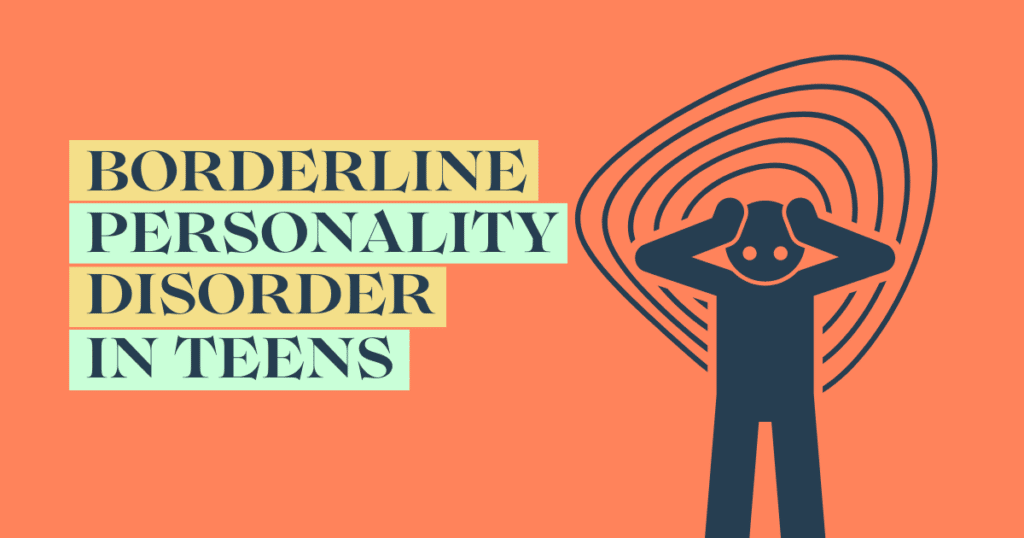Learn about the causes, symptoms, diagnosis, and treatment of borderline personality disorder (BPD) in teens.
Can children and teens have BPD?
Whether BPD can affect children or teens has long been debated. However, growing evidence shows that children as young as 11 years may have this disorder.
Identifying borderline personality disorder in teens can be tricky. It is because a teen’s personality is rapidly evolving, and many of its symptoms overlap with typical teen behaviors. To make things worse, evaluating symptoms is not enough to confirm a diagnosis.
Fortunately, a mental health professional can diagnose BPD by interviewing previous clinicians (along with family and friends) and reviewing a person’s medical/family history.
One can expect a successful recovery with appropriate treatment, which comprises talk therapy, medication, and family support.
Continue reading to find out your treatment options and how to recognize if someone you love might have this disorder.
What is BPD, and How Common is It?
An individual with BPD finds it challenging to regulate their emotions. The loss of emotional control can result in distorted self-image, impulsiveness, dramatic mood swings, and unstable relationships.
Surveys show that BPD affects 1.6% of the general population and 20% of those admitted to the psychiatric ward. Notably, the occurrence among adolescents is higher at 3%. Likewise, more than 1 in 10 adolescents visiting an outpatient clinic have BPD.
Causes of BPD
No one knows the exact causes of borderline personality disorder. However, a combination of genetic, environmental, and physiological factors may increase the risk.
Genetics
Scientists are yet to identify specific genes associated with BPD. Nonetheless, having a close family member (a parent or sibling) with the disorder may put you at a higher risk of developing BPD.
Environmental and social factors
Those exposed to traumatic life events during childhood may be at a greater risk. Traumatic life events include physical or sexual abuse, abandonment, separation, and neglect.
Brain function
Neuroimaging studies show that people with BPD have dysfunctional emotion regulation systems. Moreover, specific brain areas involved in emotional control and judgment may be different from those in people without this disorder.
Signs and Symptoms of BPD
Seek immediate medical help if your teen shows any of the following signs and symptoms of BPD:
- Frequent dramatic mood swings
- Episodes of rage
- Feeling “empty” or “numb”
- Frequent changes in self-image
- Suicidal thoughts
- Recurrent self-injury (e.g., cutting or burning oneself)
- Irritability
- Suicidal behaviors
- Unsafe sex
- Reckless driving
- Binge eating
- Illegal drug use
- Poor boundaries
- Intense and unstable relationships
- Intense fear of rejection or abandonment
- Feeling misunderstood
- Paranoia and dissociation
Borderline Personality Disorder Diagnosis
No medical test to diagnose BPD is currently available. Furthermore, a diagnosis cannot be confirmed solely based on the symptoms.
A licensed mental health professional, such as a psychiatrist, psychologist, or clinical social worker, can diagnose this disorder using the BPD diagnostic criteria in the Diagnostic and Statistical Manual of Mental Disorders (DSM).
During the diagnosis, they will ask several questions to gain insight into a person’s behavior and history. The questions are typically related to:
- Personal and family history of mental illness
- Work history
- Impulse control
Besides, they will often question family and friends to collect more information about a person’s behaviors.
BPD Treatment: What are Your Options?
Treating borderline personality disorder can be challenging. Nonetheless, newer, evidence-based treatments can significantly reduce symptom severity and improve the quality of life. Treatment aims to improve psychosocial functioning, decrease symptom severity, and lower the risk of suicide and self-harm.
BPD treatment usually involves talk therapy (psychotherapy), medication, or both. People with BPD often have other coexisting medical conditions, such as:
- Mood disorders
- Anxiety
- Addiction
- Eating disorders
- Bipolar disorder
- Attention-deficit/hyperactivity disorder
If any such problem is present, it is also critical to treat them.
Psychotherapy
Psychotherapy is the primary treatment for BPD. The following types of psychotherapy are commonly used.
Dialectical behavior therapy (DBT)
Developed specifically for individuals with BPD, DBT includes weekly individual and group sessions. During the sessions, you will learn several skills that can help you maintain meaningful relationships, stay mindful of your thoughts, control emotions, and respond to stressors.
Evidence shows that DBT can lower suicidal and non-suicidal self-injury and psychiatric hospitalizations.
Mentalization-based treatment (MBT)
Mentalization is how you understand your and other people’s mental states. This technique involves weekly individual sessions and group sessions. Research shows that MBT mainly benefits teens with depression and self-injury behaviors.
Cognitive-behavioral therapy (CBT)
CBT is a short-term, goal-oriented therapy. It teaches you skills to identify problematic thoughts and how you can replace them with better ones.
Group therapy
In group therapy, people with BPD discuss their problems and interact with each other. A therapist or psychologist supervises the group therapy sessions.
Medications
Doctors rarely prescribe medications as the primary treatment for BPD. A psychiatrist may sometimes recommend medicines to control impulsivity, instability, suicidal behaviors, and non-suicidal self-injury. Besides, medications may be necessary to address a coexisting medical condition.
There is little evidence to support the long-term use of medications for BPD. Antidepressants, antipsychotics, and mood stabilizers can help control:
- Anger
- Mood swings
- Impulsive behaviors
- Hallucinations
- Low mood
Hospitalization
Short-term hospitalization may be necessary during periods of intense stress and suicidality.
BPD Treatment for Teens in Southern California
Though BPD is a long-term condition, many people improve over time. In some people, the symptoms may go away in their 40’s.
Proper treatment significantly reduces the risk of self-harm, suicide, and addiction.
To learn more about treatment options for teens with BPD, contact Hillside Horizon for Teens at 855-746-8378.




